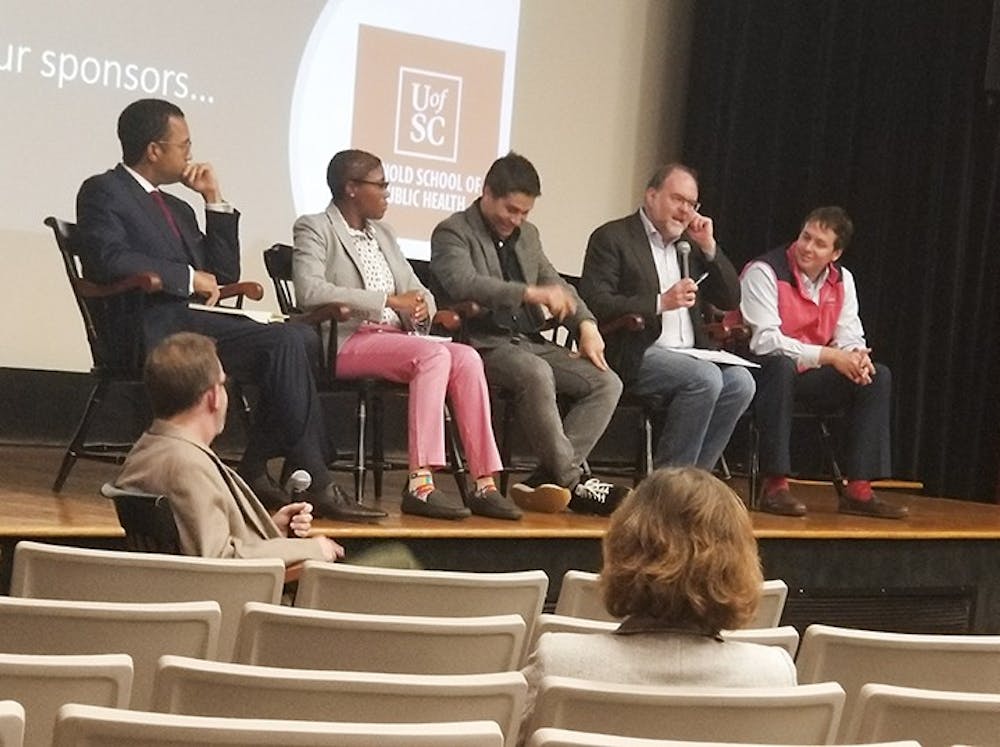“When I Stutter,” a 2017 documentary that covers the impact of stuttering in the lives of multiple people, was shown Thursday at the Russell House Theater at the University of South Carolina.
After the showing of the documentary, there was also a guest speaker panel with filmmaker and director John Gomez and several other people who relate to either the subject of the film or have an academic viewpoint on the topic.
Both Aisha Haynes, assistant director at the Center for Teaching Excellence and Charley Adams, clinical assistant professor in communications sciences and disorders in the Arnold School of Public Health, were the two main driving forces behind the screening coming to USC. In fact, Adams tried to get the film to screen at USC around the same time last year.
“This one is far and away the best one that I’ve seen to help people better understand the experience of stuttering," Adams said. "Which is important because I would say that by and large stuttering is misunderstood.”
“When I Stutter” is based off interviews and reenactments of stories that the people interviewed experienced. It's not a long film, but it is able to capture the struggles of everyday life for people who stutter through a minimalist style. It's a very diverse film, not just in who it shows but also in the types of stutterers it features.
At the end of the screening, the panel discussion was held.
Gomez explained why he chose to make the movie and the reasons the subject matter is important to him. Haynes told personal stories of stuttering that gave further insight into the impact stuttering has on one's life. She said one of her goals with the screening is to help people become more comfortable with stuttering.
“Hopefully it'll show people who stutter that it's okay to stutter and that they can be more open about their stuttering, and that they can advertise and share their stuttering with a wide variety of people,” Haynes said.
Much of the audience in attendance were students, some from Adams' graduate class on the subject of stuttering. There were also a few people from the general public and some professors who are familiar with speech psychology and its effects on people.
Caitlyn Duffy, a second-year speech language pathology graduate student, said the documentary helped her learn more about the populations she serves through her major.
“This was just a really awesome opportunity to hear from many voices in the stuttering community and in the speech language pathology community,” Duffy said.
Adams said he hopes the screening will spark conversation about stuttering.
“I hope that people will leave with a better understanding of what it feels like to be someone who stutters, and will maybe share that information with others.” Adams said.

